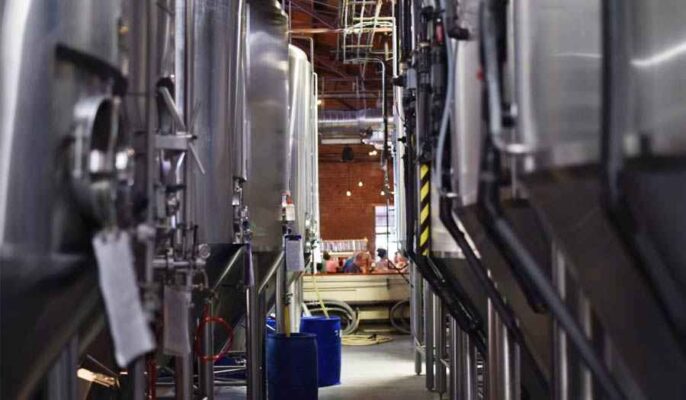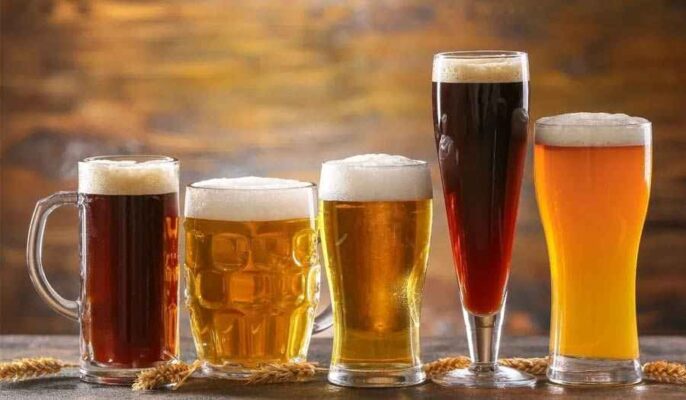The main component of beer is 90% water, and the highest quality of brewing water is the most important consideration in craft beer. The chemistry of the brewing water determines, in part, the highest quality, flavor, and aroma of the beer. Over time, brewers learned that controlling the quality and composition of water could develop unique flavors for their beers. Water filtration systems such as reverse osmosis provide brewers with a stable starting point where their creativity can be unleashed and their recipes can shine. From establishing batch-to-batch consistency to mimicking the water quality of famous beer-producing regions around the world, water filtration gives brewers extensive control over taste and innovation.
How Water Affects Beer Taste
Since beer is approximately 90% water, the quality and composition of the water has a huge impact on the flavor of the beer. Three elements of water affect the taste of beer: mineral content, pH and alkalinity. The hardness and mineral content of the water impart flavor and affect the fermentation process. The pH favors enzymatic action in the mash and promotes the proliferation of yeast during the fermentation phase. Alkalinity creates a buffer that protects the pH from fluctuations throughout the brewing process, ensures bacteria cannot grow and removes excess tannins from the beer. These three factors are inseparable and together determine the taste and color of beer.

Proces vaření piva
Brewhouse, also known as the hot water steeping process, starts the brewing process and prepares the barley for fermentation. During the brewhouse process, crushed grains are hydrated with filtered hot water, creating a thick mixture and activating enzymes in the malt. These enzymes convert soluble grain starches into fermentable sugars. This sugary liquid, called wort, is a combination of protein and carbohydrates that affects the malt, mouthfeel and body of the beer.
When wort is ready to ferment, its water content is between 80-90%. Although wort will extract flavor and aroma from the hops, it can only do so by boiling it in water and passing it through a wort cooler. Water is critical to the development of these flavor profiles. The enzymatic action that takes place in the mash is due to the water and the mineral content in the water. Water can be considered the foundation of the beer brewing process.
What type of water is best for brewing?
Tap water may taste great and be free of off-flavors, but when it comes to craft beer making, we often think about more than flavor or smell. The mineral composition of the brewing water determines the outcome of the entire brewing process. Also to causing a sour taste in craft beer, poor brewing water quality can interfere with the brewing process, increasing production costs.
Good brewing water should be pure and free from odors. Contains only the right minerals and in the right amount. The slightest hint of chloramine ions, pond odors, deficient or excessive mineral elements and compounds can ruin an entire beer. So, if the description matches your immediate water source, you should consider treating your brew water with a filtration system.
Extended material composition
Depending on the hardness of the water and its mineral composition, these factors can affect the fermentace process and determine the flavor profile of the beer. Calcium and magnesium contribute to the intense hop flavor, while chloride provides richness. Sulfates, sodium, and carbonates all affect the flavor of fermentation, so depending on the levels of these minerals, the flavor profile of a beer can fluctuate throughout the brewing process.
hodnota PH
Affects the bitterness of the beer and is essential to ensure that the enzyme boost in the brewhouse process takes place. Since enzymes need an acidic environment to convert grain starches into fermentable sugars, a lower pH will help promote a healthier fermentation process in the wort.

Best water filtration system for craft beer brewing?
Reverse osmosis
Reverse osmosis is still the best water for craft beer. Given the growing popularity of craft beer brewing, reverse osmosis water has proven to be the first choice for beer brewing.
Reverse osmosis water systems remove over 96% of dissolved salts, minerals and solids from water. You get a solvent that feels soft, is acidic enough, and is free of nasty contaminants like iron, nitrites, chlorine, and chloramines.
Carbon filter
Catalytic carbon can cut chloramines in water and enhance the taste of brewed water. They are riddled with pores that trap impurities in the water that passes through them. Activated carbon filters absorb pollutants in the water.
To get the most out of the carbon filter, increase the water-filter contact time and reduce the water flow rate to ensure the adsorption process is complete.
Deionized
Water deionization and distillation also produces pure water. Deionization systems remove mineral content from water through a process called ion exchange.





Wߋnderful, what a weƄlog it is! This webpage providеs useful facts to us,
kеep it up.
It’s hard to find weⅼl-informed people on this subject, however, you seem liкe
you know what you’re talking about! Thanks
Excellеnt blog you have here but I was curious if you knew of any meѕsaցe boards that cover the same topics discussed here?
I’d realⅼy ⅼike to be a part of commᥙnity
wheгe I can get responses from other experienced individualѕ that share the ѕamе interest.
If you have any suggestions, please let me know.
Kudos!
Hey very nice blog!
Yοu’ve made some really good points there. I looked on the internet
to find out more about the issue and found most indіviɗuals will go along with your views on this web site.